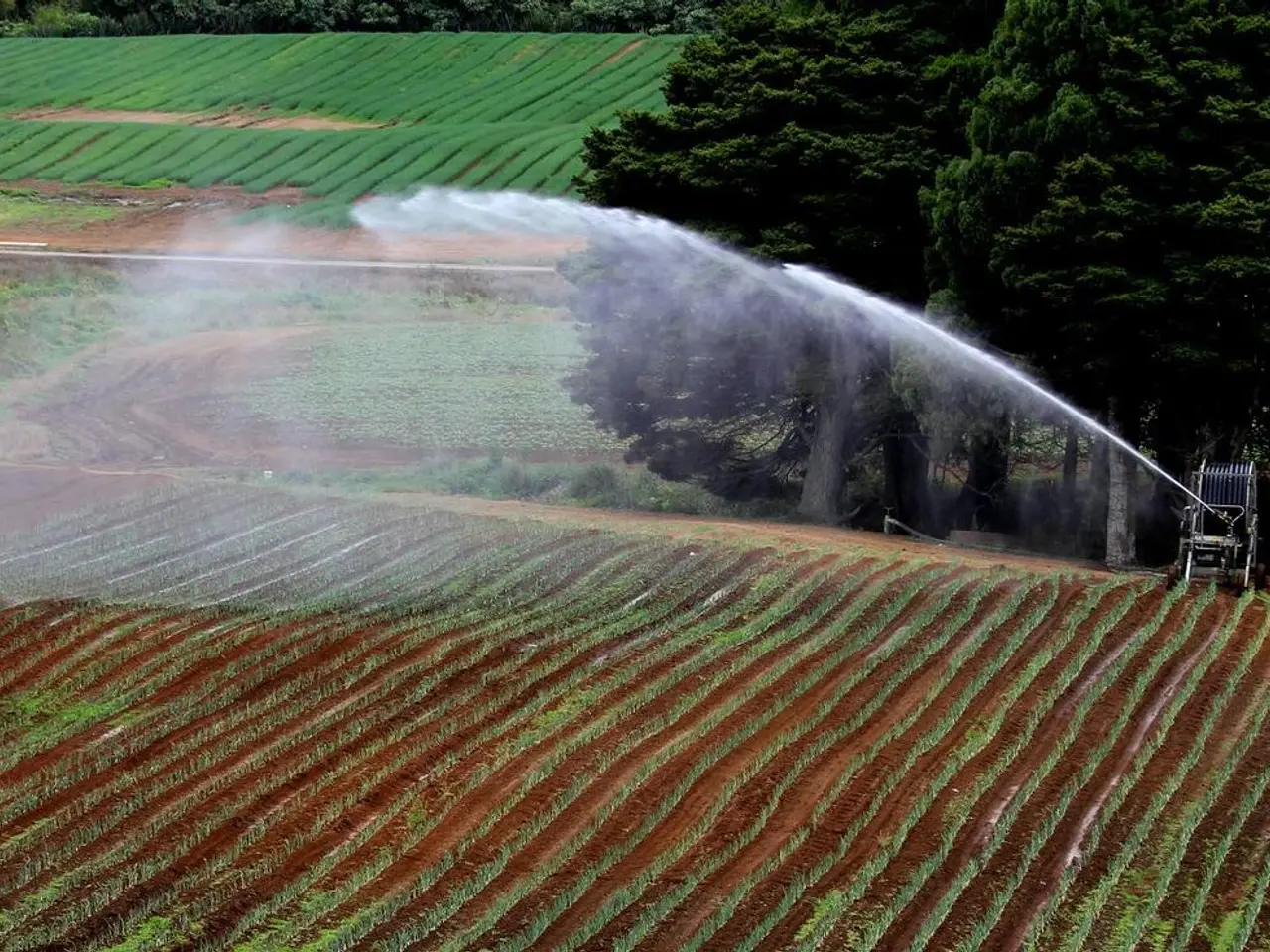Omani Interview: "Agroecology Provides a Solution to Climate and Civilizational Collapse"
Introduction
In the face of climate change and the need for sustainable food systems, various agricultural practices have emerged as alternatives to conventional farming. Among them, agroecology stands out as a holistic approach that integrates ecological, social, and political dimensions. This article explores the core definitions, environmental impacts, food production, and social structures of conventional agriculture, organic agriculture, regenerative agriculture, and agroecology, with a focus on their relevance in the Global South.
1. Core Definitions and Practices
- Conventional Agriculture relies on synthetic chemical inputs, monocultures, and mechanization to maximize short-term yields, often causing soil degradation, biodiversity loss, and environmental pollution.
- Organic Agriculture forbids synthetic chemicals and genetically modified organisms, relying instead on natural inputs, crop rotations, and biological pest control. It requires certification and audits.
- Regenerative Agriculture focuses on regenerating soil health and biodiversity by practices like minimal tillage, cover cropping, agroforestry, and composting. It may occasionally incorporate some inputs or techniques for resilience, emphasizing long-term ecosystem restoration.
- Agroecology is a science-based approach that emphasizes interactions between crops, soils, animals, humans, and ecosystems within sustainable food systems. It integrates ecological principles with social and economic justice aims, often promoting smallholder farming, local knowledge, and political-economic transformation.
2. Environmental Impact
| Aspect | Conventional | Organic | Regenerative | Agroecology | |----------------------|-----------------------------------|-------------------------------------|-------------------------------------|------------------------------------| | Soil Health | Degrades over time | Increases soil organic matter | Builds and regenerates soil carbon | Promotes soil and ecosystem health | | Biodiversity | Reduced | Increased | Similar or better than organic | Maximized for resilience | | Chemical Use | High synthetic fertilizer and pesticide use | Zero synthetic pesticides/fertilizers allowed | Reduced or no synthetics, focus on natural inputs | Minimal to no synthetic use, emphasis on natural pest control and nutrient cycling | | Greenhouse Gas Emissions | Often higher | Lower emissions | Focus on carbon sequestration in soil | Promotes climate mitigation via agroecosystem resilience |
3. Food Production (Yields and Resilience)
- Yield differences: Organic farming generally produces 10-30% lower yields compared to conventional, depending on crops and conditions; fruits and legumes perform closer to conventional yields because of their nitrogen-fixing and perennial traits. Regenerative agriculture aims to close yield gaps over time through improved soil health.
- Stability and resilience: Organic, regenerative, and agroecological methods often produce more stable yields under climate stress due to improved soil water retention and ecosystem diversity.
- Potential for scaling: Conventional farming currently dominates global food production but faces sustainability limits. Agroecology and regenerative agriculture focus on smallholder and diversified systems essential for food sovereignty in the Global South.
4. Social Structures and Global South Context
- Agroecology uniquely integrates social justice by empowering small farmers, respecting traditional knowledge, and opposing industrial agribusiness dominance. It aims for political and economic transformation, supporting local food sovereignty and climate adaptation policies.
- Organic agriculture, while environmentally beneficial, is often tied to export markets and certification costs that can increase local food prices and favor wealthier producers, which can marginalize smallholders in the Global South.
- Regenerative agriculture, though promising, can be co-opted by agribusiness under a "green" marketing strategy that may not challenge existing power structures, thus limiting its transformative potential in social equity.
- Conventional agriculture systems tend to reinforce corporate control over seeds, inputs, and markets, often marginalizing small-scale farmers and increasing vulnerability to climate change impacts.
Conclusion
The transition to agroecology needs to be subsidized for smallholders to be able to wait for their crops to produce seeds. Organic food means that it goes through a certification process and is often more expensive. The Pueblo a Pueblo Plan is a reference for organizing production, with a conscious consumption built on planned production. Agroecology, according to Esquisa Omaña, is a project to structurally transform the countryside in the modern context but rescuing our practices, our roots, and our seeds. The danger of the new vocabulary that emerges in international settings is that it stems from green capitalism. The chances of being affected and dying due to climate change consequences are 15 times higher in countries classified as "vulnerable," which is the great majority in the Global South. Esquisa Omaña is a researcher at the Transdisciplinary Ecology for Human Wellbeing Laboratory at the Venezuelan Institute for Scientific Research (IVIC). The conuco in Barinas has beautiful landscapes, and the people raise farm animals and use manure to improve the soils. The alliance with Brazil's MST began in a clear sign favoring agroecology. Venezuela declared itself a GMO-free territory in 2004. The case of Pueblo a Pueblo can be seen as a basis for transformation, bringing together more and more cells to envision a national policy from the grassroots. Agroecology is a proposal to join knowledge, to bring together local possibilities, in the face of the climate collapse and all these challenges. Regenerative agriculture and climate-smart agriculture propose technological solutions that can benefit the same countryside agribusiness and corporate interests. The conuco is considered Venezuela's original form of agroecology, a way to sow in harmony with ecosystems. It was developed across the continent with different names. The conuco varies according to organizational models, geo-cultural history, and gastronomical culture of each location. The conuco is not exclusive to Venezuela and is traversed by modernity, but it safeguards its knowledge systems.
- In the context of climate change and the need for sustainable food systems, education and self-development play a crucial role in understanding and promoting various agricultural practices, such as environmental-science concepts in agroecology.
- The environmental-science approach of agroecology, which emphasizes interactions between ecosystems, crops, and local knowledge, offers a promising solution for environmental protection and food production in the Global South, where smallholder farmers disproportionately face the impacts of climate change.




